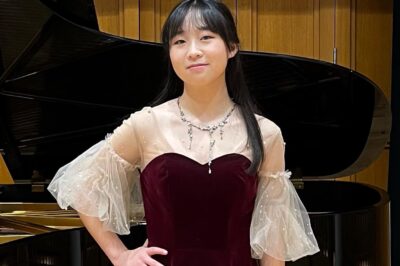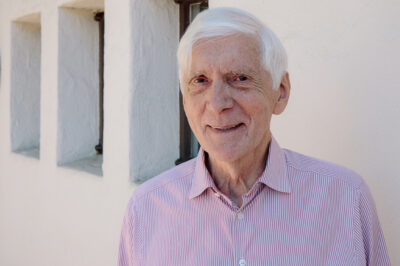Barbara and Erik Antonsson
Meet husband and wife, Erik (E) and Barbara (B) Antonsson, two of Elizabeth Babor’s adult piano students. Barbara has been a student of Elizabeth for 10 years with no prior musical experience. Through observation of Barbara’s progress and having a connection with Elizabeth, three months ago, Erik was inspired to take lessons as well. Erik and Barbara are a constant source of encouragement for each other. In this interview, they tell the story of their musical journey and how it has greatly benefited their lives.
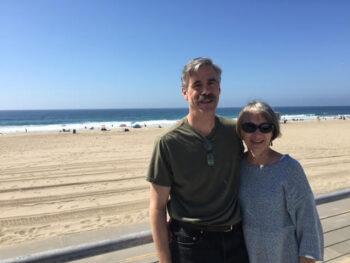
Can you talk a little about your professional and personal background?
B: I’m a retired nurse – I retired two years ago. We’ve lived in Pasadena since 1985 after we got married. We moved here because Erik took a position at Caltech.
E: I’m an engineer. We met in Boston when she was at Children’s Hospital, and I was a graduate student at MIT. When I finished up, as Barbara said, I had an opportunity to join the faculty at Caltech and we moved out here.
B: We’ve been here ever since.
Can you talk about your musical background?
E: When I was six, my parents started me on piano lessons and I played until I was nine and I hated every aspect of it. Practicing, the lessons, the recitals – I hated it. I finally convinced my parents to let me play something else and they did.
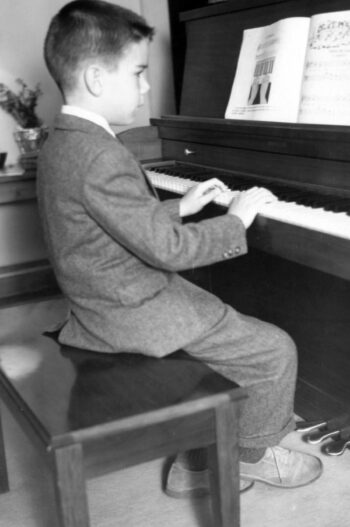
My father, from his days of serving in World War II in the Pacific, had a ukulele. The challenge was I had to learn how to play the ukulele before anything else. So I taught myself. Then I got a guitar and played as an amateur through college, graduate school, and beyond playing at coffee shops and such. I never touched the piano, except occasionally playing a chord I’d remember.
But then we got a piano in our house.
B: It was 15 years ago. I’d always wanted to play but the opportunity just never came up.
E: She was despaired about never getting a piano so, to make a long story terribly short, I managed to sneak one into the house for Christmas. It was so fun.
B: It was a huge surprise. I was cooking Christmas Eve dinner…
E: Then I went to the kitchen, covered her eyes, guided her to the piano, sat her down, and she burst into tears.
B: And I had zero musical background but I’ve been taking piano lessons ever since!
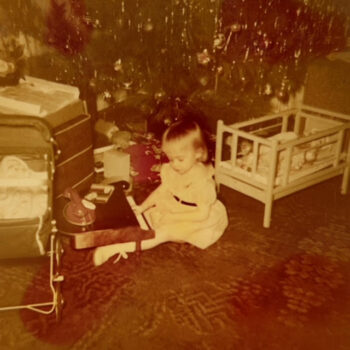
What motivated you to sign up for lessons? How long have you both been involved in the PCM community?
B: I’ve been taking lessons here for about 10 years. I always thought PCM was only for serious music students so I had various teachers who would come to the house over the years. But then, I called here one day to ask if someone taught adults and said I didn’t want to learn theory. Then I started with Elizabeth Babor and I have been with Elizabeth pretty consistently since then, except for brief stopping periods. But after I retired, I just went whole hog with it.
Then Erik’s story is kind of funny.
E: I had been watching Barbara’s lessons and seeing her terrific affinity with Elizabeth. They chatter like two young girls for what seems like most of the lesson. They clearly enjoy each other’s company.
Watching Barbara progress musically was a great delight. Instead of ‘recitals’, Elizabeth puts on ‘works in progress’* which is brilliant. So I’ve gone to the ones where Barbara’s performed, which enabled me to get to know Elizabeth.
And Barbara’s been urging me, over at least the last year, with my music background…
B: …to try it! I came home and told you Elizabeth has openings for adults.
E: And that was just three months ago so I’m new. It’s fun to be making music again. It’s actually enjoyable to be learning how to play the piano. I’ve learned it’s common for kids who were forced into piano and hated it, to love it later in life.
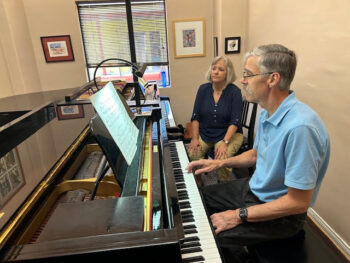
Why do you think that is?
E: As a child, none of the music meant anything to me. The teaching was rigid and while they weren’t literally racking my knuckles at the keyboard it felt like that mentally.
It’s different now because Elizabeth is a wonderful teacher. She’s so encouraging and supportive and asks me what I want to play. There are some classical etudes, but I’ve been working through this book of blues and jazz. It’s similar to the music I played on fret instruments.
B: When I showed up for my first lesson with Elizabeth, I brought music for David Lanz’s Silent Night, which is a beautiful piece and pages long. Even though I was a beginner she was unfazed and said of course; and, by the end of the year, I could play it.
So do you ever play together or talk about music? How do you learn about music through each other?
B: We do talk about it, but mostly about what the other is learning.
E: And we hear each other practice. It’s amusing because we go through the same thought process on either side. So when Barbara practices, she’s so worried that I’m having to listen to the same part over and over again, and I always assure her and say I don’t mind. But when I’m the one practicing, I get nervous about her having to listen to the repetition. But I really don’t mind because it’s lovely to have music in the house. And it’s really amazing hearing and witnessing the creative process. When one section is repeated you can hear her start to get it and make progress through each time.
B: I feel the same way.
What music do you like to play?
B: I honestly love standard, classical music. I currently feel like modern music is too difficult for me. Maybe this sounds silly but when I play Beethoven pieces, it’s the one composer where I can feel him and his emotion in the music. I just love it. I am currently working on the Moonlight Sonata, which is so beautiful.
But we’re going through the Keith Snell music books and they have different colors for different levels. I started at level 1 and am now on level 7 so whenever I walk through the parking lot, I make sure the color of the book is showing.
E: I’m level 1 so it’s too soon to say. I like the studies that I’m working on even though I know that they’re intended to be instructive – it’s making music, so I’m enjoying it.
So how do the skills that you’ve gained from music show up in other areas of your life?
B: Piano has helped me with my motivation and with sticking with something. Though it’s been a hard lesson, it’s an important skill to be able to talk myself into doing it and being patient with myself.
E: It’s too soon for me to have any real observations. But for both of us, or for anyone who plays an instrument, along with the process of sticking with it comes that sense of accomplishment. That distinct feeling of first looking at a piece and not even imagining where my fingers will go – then after a while, you’re playing it. That sense of accomplishment is very powerful.
Another special thing about music when thinking back to my years playing fretted instruments, I met and made some of my best friends through music. It is a great conversation topic and then eventually we’d be playing together and it’s a super fast way to make friends. Boy, that was enjoyable getting to meet people I wouldn’t necessarily have met if it weren’t through music.
B: When you get to be our age you think, “am I too old to try something new?” When, in fact, it’s been tremendous. For example, it’s been so hard to learn how to coordinate two hands playing different things, but, like Erik said, when you finally figure it out there’s such a sense of accomplishment. It’s unbelievable.
Is there anything else you would like to add?
B: Elizabeth Babor is fabulous.
E: I would say the same thing – Elizabeth truly is fabulous. She has such a gentle way of teaching. I’ll be in the lesson and it feels like we’re just talking and doing a little bit of playing then I get home and realize how much she’s imparted.
B: I wish more people knew about PCM as a resource to actually take lessons. And it doesn’t have to be all theory or be super formal. I can’t believe I’ve lived here since 1985 and finally figured out this great place.
* Elizabeth Babor: “Works in Progress is a class that’s open to adult piano students who want to try out playing in front of others. Some students are preparing for a recital, while others haven’t even given it a thought. They can play anything they’re working on, even if it’s just a few lines of a piece. Sometimes they share how nervous they are, or why they picked their particular piece. It’s a fun and supportive way to share music.”

